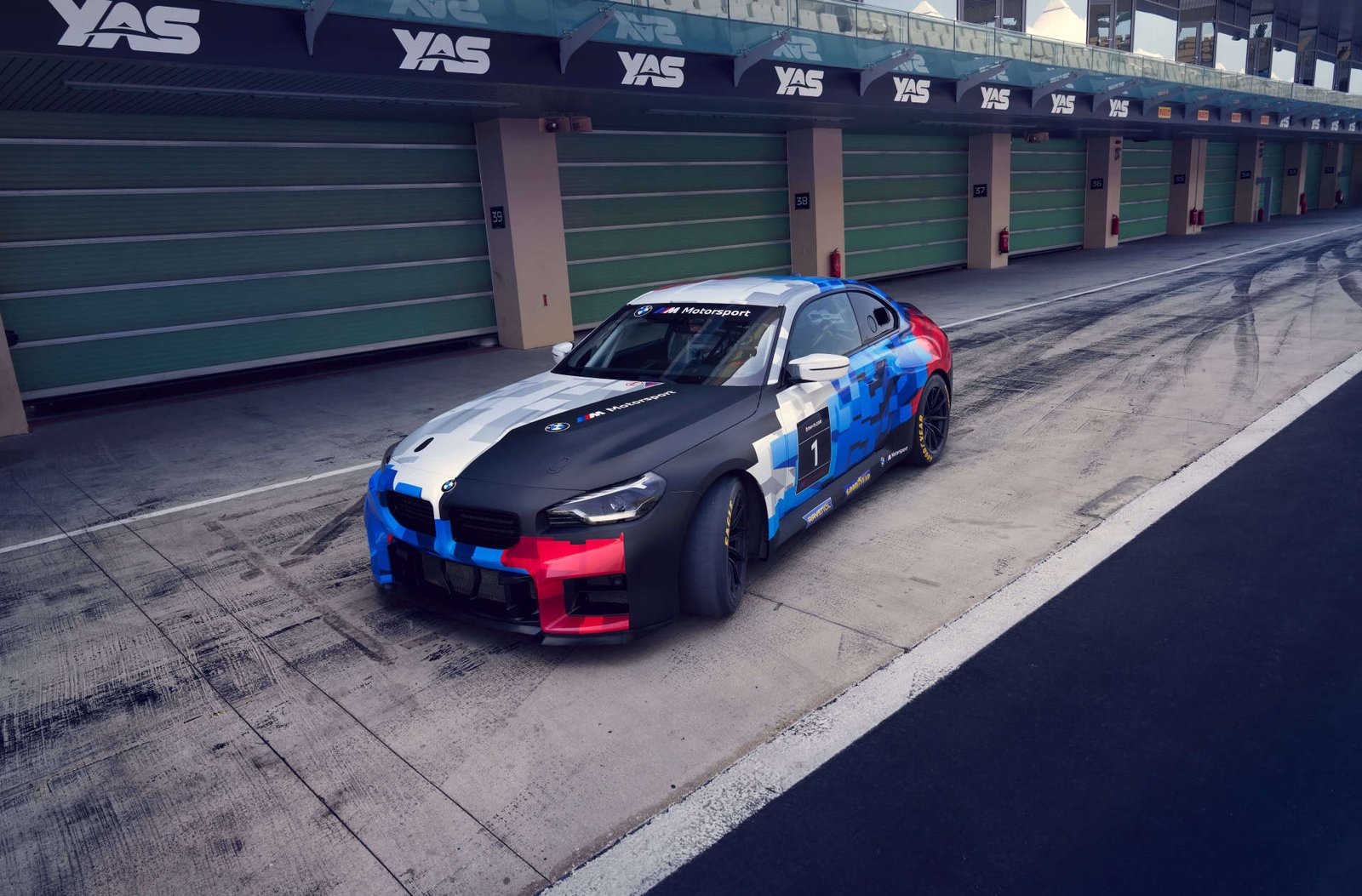Following its official debut in late April, the M2 Racing has landed in Japan. The four-cylinder G87, intended solely for track use, sits at the bottom of BMW M Motorsport’s lineup. But race cars are expensive, so it’s no surprise that amateur racers must plunk down ¥21,000,000. At current exchange rates, that works out to $144,000 or €123,000. The listed price excludes the 10% consumption tax, so the final amount is even higher.
The M2 Racing is your most affordable entry into BMW racing, with the M4 GT4 and M4 GT3 priced significantly higher. As the first track-only variant of the current-generation M2, it replaces the F87-based M235i Racing and M2 CS Racing. Instead of the road car’s inline-six 3.0-liter engine, it uses a smaller B48 2.0-liter turbocharged four-cylinder, dropping two cylinders and one liter of displacement. Output is rated at 313 hp and 420 Nm (310 lb-ft), but it can be adjusted to meet various racing series regulations.
BMW Japan sells the M2 Racing equipped with an FIA-certified safety fuel tank and fire extinguisher. The welded roll cage also has FIA’s blessing. Finished in Alpine White with a carbon roof, the race car features quick-release locks for the hood and trunk, along with Makrolon rear side windows to reduce weight. All units come with a limited-slip differential and matte black 18-inch wheels wrapped in Goodyear 265/660 R18 tires.
Though it’s a thoroughbred race car, driver comfort hasn’t been overlooked. Air conditioning is standard, and a passenger seat can be added as an optional extra. The options list is surprisingly extensive, offering everything from a rear wing and air jack system to a data logger and even a car cover.
That’s nice and all, but why a four-banger instead of a proper M engine? Several reasons justify what initially seems like a surprising decision. The 2.0-liter engine makes the M2 Racing eligible for motorsport series restricted to small-displacement engines. It also reduces weight compared to a version powered by the larger S58. A smaller engine puts less stress on components, resulting in lower running costs.
Had BMW M Motorsport retained the six-cylinder engine, the M2 Racing would’ve been significantly more expensive to purchase and operate. Some may argue that the switch to the B48 was a cost-cutting move, but the larger engine would have needed to be artificially restricted to meet class rules anyway. In racing, bigger isn’t always better. Those who want six cylinders in their race car can still step up to the M4.
Source: BMW Japan



